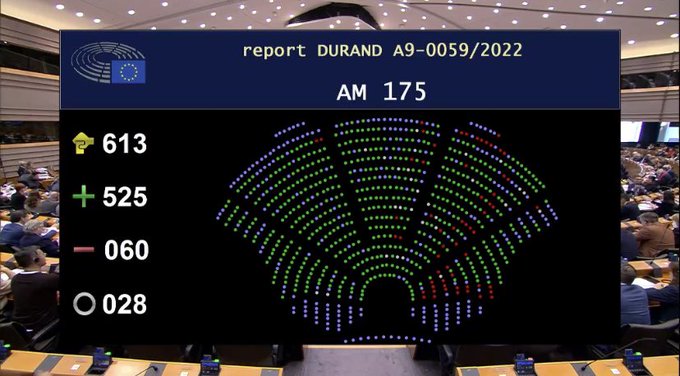As France and the world recover feverishly from an unprecedented health crisis, it's hard to say whether ecological or economic issues will take precedence. And yet, are we not condemning ourselves on the environmental front by insisting on boosting growth, vital though it is, at all costs?
"Nothing will ever be the same again": that's what Emmanuel Macron announced on the evening of March 12, the start of the coronavirus crisis. It was a spectacular phrase, with a whiff of the unprecedented, which raised hopes of the launch of an ecological transition that would at last become a reality in the wake of the containment.
Since then, however, the debate has refocused on the importance of an immediate and lasting economic rebound. With the French economy estimated to have lost €140 billion by April 20, 2020, Finance Minister Bruno Lemaire announced to the French Senate at the end of April: "We need to relaunch economic activity. The French must rediscover a taste for consumption". An appetite for consumption which, at the time, sounded like a denial of the Head of State's primary aim: to bring about a post-green world.
In early May, in an open letter written for France Inter, writer Michel Houellebecq warned that "we won't be waking up, after confinement, in a new, new world; it will be the same, only worse".
I. A commitment to economic recovery
Friday, May 15, noon, salon de l'Élysée. Seated next to Emmanuel Macron, ten economists invited by the President himself came to debate the theme: "Penser les conséquences économiques et sociales de la crise" ("Thinking about the economic and social consequences of the crisis").
In the room were Daniel Cohen, Philippe Aghion, Patrick Artus and seven other guests: all defined as belonging to the neoliberalist current, also known as "ultraliberalist", where man is "the entrepreneur of himself". For many observers, this meal formalized the French President's choice of economic rebound over ecological transition.
Around the world, the leaders of the major powers also seem to be resorting to good old recipes to boost consumption: China is preparing to build coal-fired power stations, while the United States is planning massive support for the airline sector as part of its $2,000 billion plan to save the economy.
Faced with this situation of global recovery, environmental philosopher Augustin Fragnière warns: "As is often the case, economic recovery is likely to be accompanied by a rebound in CO2 emissions". While in 2008 the crisis initially led to a fall in greenhouse gas emissions, the following year (synonymous with recovery) saw a significant increase in air pollution.
In the face of this new, much deeper economic crisis, should we be fearing an unprecedented increase in pollution?
For Xavier Ragot, Director of the Office français des conjonctures économiques (OFCE), interviewed by TV5monde, this danger seems very real: "This crisis is bad news for the environmental issue. It's going to allow a lot of pressure to be brought to bear on it. There will also be companies that will greatly delay their investments in the energy transition".
II. A pandemic as an alarm bell
Philosopher André Compte-Sponville justifies this ultimate desire on the part of international leaders to revive the global economic machine, despite its pollution, as follows: "Let's not forget that, thanks to globalization, world poverty has fallen more in the last 40 years than at any time since humanity's existence.
However, the coronavirus crisis has taught us a lot about the harmfulness of the current economic system: if we are to meet the commitments made in the 2015 Paris Agreement, the planet will have to achieve a drop in greenhouse gas emissions similar to that recorded during the two-month global economic shutdown caused by the coronavirus. In other words, between 5% and 8%.
While André Comte-Sponville rightly mentions the benefits of the economy for mankind, climate issues are just as vital concerns, both for mankind and for his economy, which could itself suffer the consequences of future environmental disasters.
III. Towards the need for a green economy
For almost half a century, the global economy has been booming, boosted by the "trente glorieuses" period and the emergence of new developing countries such as China, Russia, Brazil, India and South Africa. Although certain economic crises (1929, 1973, 2008) may have slowed down the global economy, it has always managed to get back on its feet. On the other hand, the climate situation has continued to worsen, with only the climate appearing to be permanently affected.
And yet, in the wake of the coronavirus crisis, the global economy and ecology now find themselves on the same consubstantial bench of the war-wounded. Both vital to mankind, is it possible to bring them together to revive a common cause: the green economy?
For many observers, this revival could indeed prove necessary, both for our fellow citizens and for the companies that would continue to create wealth by offering innovations and products that are more respectful of the environment.
Through Corporate Social Responsibility (CSR), a system that aims to implement sustainable development in companies through virtuous and economically viable decisions, companies could have a positive impact on society. A new corporate policy with repercussions for suppliers, employees, customers and shareholders alike: a collective initiative at the service of the collective.
On the other hand, by ignoring the imperative need for decisions to protect the climate, world leaders would be condemning the economic equilibrium that is essential to human survival. An equilibrium which could then falter in the face of the multiplication of health and environmental crises caused by the pollution of this same economic system.
If we had to wait for the coronavirus health crisis to bring the global economy to a halt, perhaps we'll have to wait for an environmental crisis on the same scale, to take concrete ecological decisions and finally be able to put into practice with conviction: "nothing will ever be the same again".


